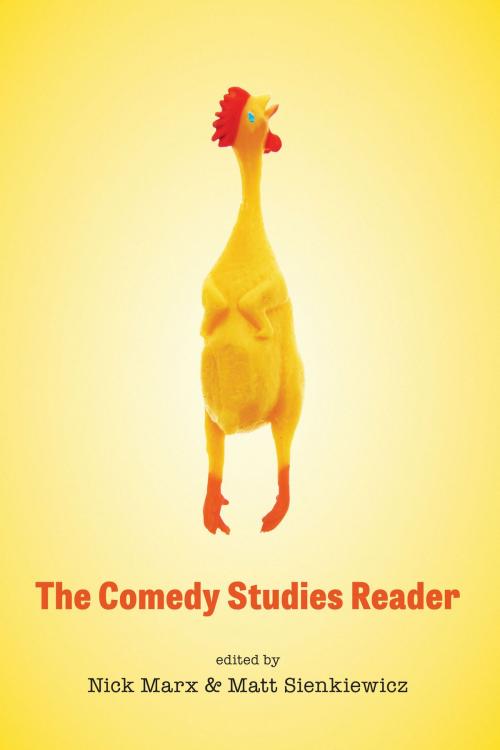| Author: | ISBN: | 9781477316023 | |
| Publisher: | University of Texas Press | Publication: | August 1, 2018 |
| Imprint: | University of Texas Press | Language: | English |
| Author: | |
| ISBN: | 9781477316023 |
| Publisher: | University of Texas Press |
| Publication: | August 1, 2018 |
| Imprint: | University of Texas Press |
| Language: | English |
From classical Hollywood film comedies to sitcoms, recent political satire, and the developing world of online comedy culture, comedy has been a mainstay of the American media landscape for decades. Recognizing that scholars and students need an authoritative collection of comedy studies that gathers both foundational and cutting-edge work, Nick Marx and Matt Sienkiewicz have assembled The Comedy Studies Reader.This anthology brings together classic articles, more recent works, and original essays that consider a variety of themes and approaches for studying comedic media—the carnivalesque, comedy mechanics and absurdity, psychoanalysis, irony, genre, race and ethnicity, gender and sexuality, and nation and globalization. The authors range from iconic theorists, such as Mikhail Bakhtin, Sigmund Freud, and Linda Hutcheon, to the leading senior and emerging scholars of today. As a whole, the volume traces two parallel trends in the evolution of the field—first, comedy’s development into myriad subgenres, formats, and discourses, a tendency that has led many popular commentators to characterize the present as a “comedy zeitgeist”; and second, comedy studies’ new focus on the ways in which comedy increasingly circulates in “serious” discursive realms, including politics, economics, race, gender, and cultural power.
From classical Hollywood film comedies to sitcoms, recent political satire, and the developing world of online comedy culture, comedy has been a mainstay of the American media landscape for decades. Recognizing that scholars and students need an authoritative collection of comedy studies that gathers both foundational and cutting-edge work, Nick Marx and Matt Sienkiewicz have assembled The Comedy Studies Reader.This anthology brings together classic articles, more recent works, and original essays that consider a variety of themes and approaches for studying comedic media—the carnivalesque, comedy mechanics and absurdity, psychoanalysis, irony, genre, race and ethnicity, gender and sexuality, and nation and globalization. The authors range from iconic theorists, such as Mikhail Bakhtin, Sigmund Freud, and Linda Hutcheon, to the leading senior and emerging scholars of today. As a whole, the volume traces two parallel trends in the evolution of the field—first, comedy’s development into myriad subgenres, formats, and discourses, a tendency that has led many popular commentators to characterize the present as a “comedy zeitgeist”; and second, comedy studies’ new focus on the ways in which comedy increasingly circulates in “serious” discursive realms, including politics, economics, race, gender, and cultural power.















